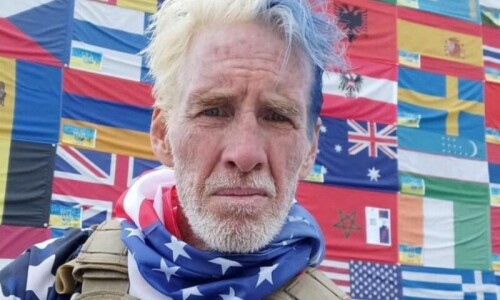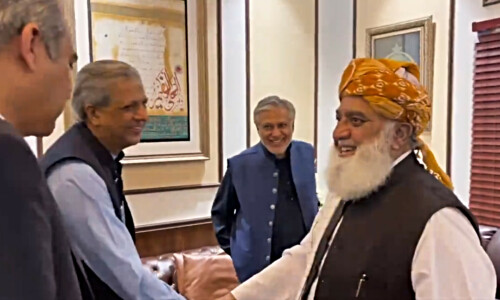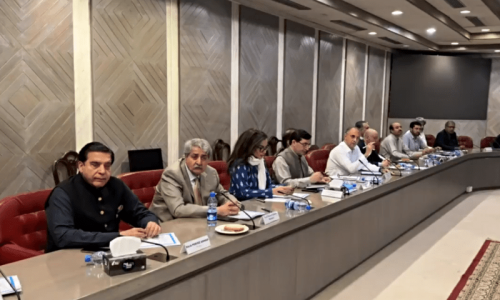KARACHI: While holding wealth abroad is not inherently illegal, it is unfortunate that very few people have kept their assets here in Pakistan as estimates by a financial expert suggest that around $150 billion is stashed in foreign countries in the form of properties and other assets while around $100bn out of this amount has no money trail.
This was revealed during a discussion organised by the Pakistan Institute of International Affairs (PIIA) with chartered accountant and former chairman of the Federal Board of Revenue Syed Shabbar Zaidi and member of PIIA council Zafar Shafiq on the topic of “Offshore assets of Pakistani citizens” in its library on Saturday.
Introducing the two speakers, PIIA chairperson Dr Masuma Hasan said that the idea for the session grew out of her reading of Shabbar Zaidi’s book Panama Leaks — Offshore Assets of Pakistani Citizens.
A discussion with ex-FBR head offers an understanding of citizens’ offshore assets and Pakistan’s financial crisis
In his presentation, Shabbar Zaidi said that the finance minister of Pakistan in an official summary had stated that Pakistani citizens had over $200bn worth of assets outside Pakistan.
He said that in his view this figure was overstated and his own estimate was around $150bn, which is almost equal to Pakistan’s foreign loans.
“Out of these assets a substantial sum, which may be around $30-40bn, represent the sum which has no relation with Pakistan’s tax law as it represents the foreign income earned by offshore Pakistani citizens. This means that around $100bn represents the sum which relates to Pakistan but has not been accounted for properly,” he claimed.
“For around $100bn there is no trail of the source,” he claimed.
“The reason for this was that the assets are properties in the UK, USA and Europe for people prior to 2000 with Dubai also added after 2000; the portfolio investment in foreign banks; shares in Pakistan companies through offshore trust, etc,” he added.
He also said that the composition of each part is almost equal being $33bn. The non-declaration of these assets is one of the reasons why the next generation does not live in Pakistan.
He said that it was quite obvious that the money sent abroad or the offshore assets would not be brought back to Pakistan. Therefore, it was decided that an amnesty be given. Thus a law called ‘Protection of Economic Reform Act, 1992’ was made to bring the assets or funds remitted out of Pakistan after 1992 to 2018 to record. There were no foreign exchange regulations during that period.
“But the problem arose in 2022 when the government also decided to impose wealth tax on this money,” he said.
“This is how Pakistan’s foreign assets and economic history are tied together. Pakistan is an unlucky country. It has been spoiled by its own people. Very few people have kept their assets here in Pakistan as everyone wants to get their money out. Until you give confidence to your people, they won’t bring their assets here,” he said.
In his presentation, Zafar Shafiq said that while the practice of holding wealth abroad is widespread and not inherently illegal, it does raise issues related to tax evasion, money laundering and financial transparency.
“Governments and international organisations continue to develop regulations and frameworks to ensure that these activities are conducted legally and transparently, promoting global financial stability and integrity,” he said.
“The governments in Pakistan, India, Bangladesh and other countries have periodically introduced amnesty and tax whitening schemes to encourage declaration of undisclosed income and assets. These schemes aim to bring hidden wealth into the formal economy, increase tax revenues and promote financial transparency. However, they are often met with mixed reactions due to ethical and economic implications,” he added.
“By addressing the root cause, which drives investors to keep their wealth abroad, governments can create an environment that encourages the retention and repatriation of wealth, thereby supporting national economic development,” he concluded.
Published in Dawn, June 30th, 2024















































Dear visitor, the comments section is undergoing an overhaul and will return soon.